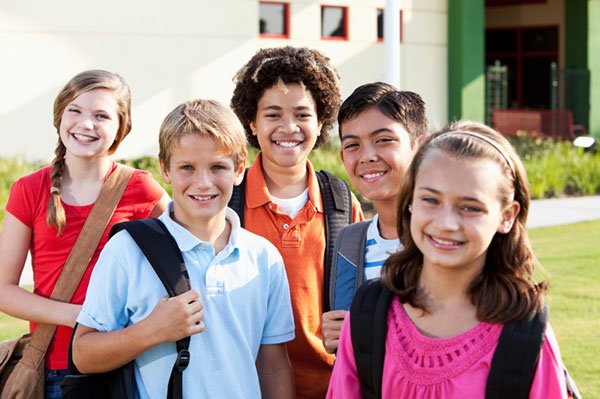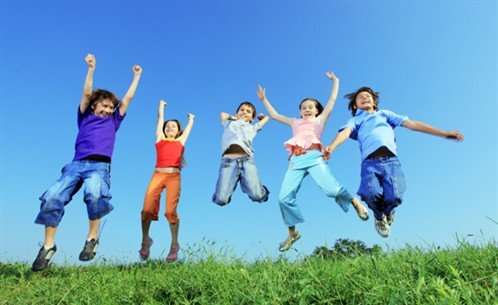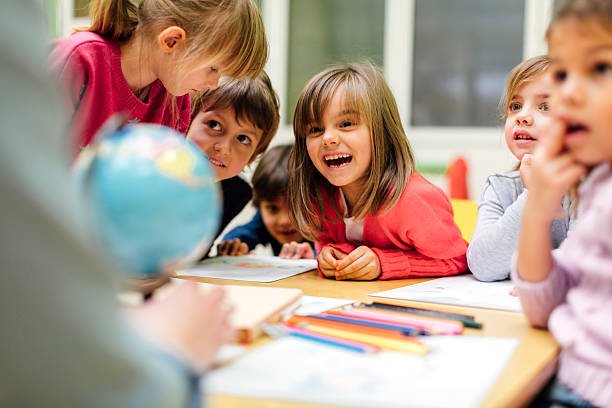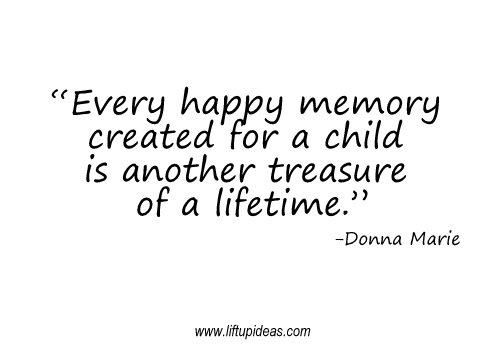Peer Groups and School as Agent of Childhood Socialization
Peer Groups and School as Agent of Childhood Socialization

Image Source
As the child develops, peers turn out to be progressively essential as socializing agents. The peer group varies from the family on a few measurements. These distinctions impact the sort of interaction and consequently the sorts of socialization that happen. The family comprises of people who contrast in status or power, while the peer group is made out of status approaches.
From an early age, the child is educated to approach parents with deference and regard. Inability to do as such will likely outcome in train, and the grown-up will utilize the episode as a chance to teach the child about the significance of regard. Interaction with peers is more open and unconstrained, the child does not should be and careful.
Children at 4 years old years obtusely decline to give children they a chance to loathe join their games. With peers, they may state things that grown-ups think about annoying, for example, "You're ugly," to another child. This interactional give-and-take is an essential part of the kinship procedure. Membership in a specific family is attributed, though peer interactions are willful.
Peer groups offer children their first involvement in practicing decision over whom they identify with. The chance to settle on such decisions adds to the child's feeling of social ability and permits interaction with other children who supplement the creating identity. Not at all like the child's family, peer groups in early and particularly middle childhood are generally homogeneous in sex and age.

Image Source
A survey of 2,299 children in third through twelfth grade estimated the degree to which they had a place with firmly sew peer groups, the span of such groups, and whether they were homogeneous by race and sexual orientation. The extent having a place with a group crested in sixth grade and after that declined.
The measure of peer groups declined consistently from third through twelfth grade. Boys' groups are for the most part bigger than girls' groups. Other research shows that fellowships of seventh to twelfth grade have a tendency to be homogeneous by race. Peer affiliations make a noteworthy commitment to the advancement of the child's identity. Children take in the part of companion in interactions with peers, adding to more prominent separation of the self.
Peer and different connections outside the family give a premise to building up autonomy, the child stops to be only engaged with the parts of posterity, kin, grandchild, and cousin. These other, nonfamilial characters may give a premise to currently opposing parental socialization endeavors. For instance, a parent's endeavor to implement certain principles might be opposed by a child whose companions ridicule children who carry on that way.
Children effectively oppose grown-up culture through peer interaction and talk. Playing house may give an event to mirroring a parent, utilizing parentlike words and tone. It might likewise give "mom" with the chance to be in control, and choose which children are incorporated and avoided from the game. Despite the fact that peer culture has a tendency to be worried about the present, it plays a critical part in getting ready children and teenagers for part changes.

Image Source
School
School is purposefully intended to socialize children. In the classroom, there is ordinarily one grown-up and a group of children of comparable age. There is a sharp status refinement amongst teacher and student. The teacher figures out what abilities it instructs and depends vigorously on instrumental learning systems, with so much reinforcers as acclaim, fault, and benefits to shape student conduct. School is the child's first involvement with formal and public assessment of execution.
Each child's conduct and work is assessed by similar benchmarks, and the judgments are made public to others in the class and in addition to parents. We anticipate that schools will show writing, reading, and arithmetic, yet they do considerably more than that. Teachers utilize the prizes available to them to fortify certain personality qualities, for example, dependability, diligence, and civility.
Schools show children which selves are alluring and which are most certainly not. Consequently, children take in a vocabulary that they are relied upon to use in assessing themselves as well as other people. The characteristics picked are those idea to encourage social interaction all through life in a specific culture or society.
Social correlation has an imperative impact on the conduct of schoolchildren. Since teachers make public assessments of the children's work, every child can judge his or her execution in respect to the execution of others. These correlations are particularly imperative to the child in light of the homogeneity of the classroom group.

Image Source
References:
Gender Identity Acquisition
Children's Participation in Changing School Grounds
Sharing and Control in Initial Peer Cultures
Developing an Archaeology of Childhood Experiences
Promoting Peer Interactions of Preschool Children
Parenting Practices and Peer Group Affiliation in Adolescence
Understanding the Effect of Change on Individual Attitudes and Behaviors
Student and Teacher Relationship
Posted from my blog with SteemPress : https://steemme.000webhostapp.com/2018/07/peer-groups-and-school-as-agent-of-childhood-socialization
Friend musta na? Ibang level na mga post mo ngayon ha.
Hahaha hello friend ok.lng me here level up Tayo ng konti friend hahaha medyo mahina u.v hahaha. Naubusan na ako Bala pra s poems 😄
Bongga naman nangyari lumaki ang kita mo friend...haha
upvote for me please? https://steemit.com/news/@bible.com/6h36cq